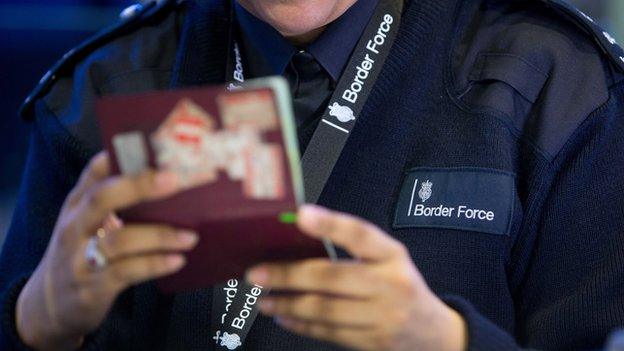Migrants crisis: Austria and Balkans call for EU answer
- Published
Austria's Foreign Minister Sebastian Kurz says the Dublin regulation is not working
Serbia and Macedonia have told a summit in Vienna the EU must come up with an action plan to respond to the influx of migrants into Europe.
A record number of 107,500 migrants, external crossed the EU's borders last month.
Austria has complained that the EU has failed to address the problem of people entering via the Western Balkans.
As the leaders were meeting, officials in Austria said several dozen migrants had been found dead in an abandoned lorry near the Hungarian border.
German Chancellor Angela Merkel said all those at the summit were "deeply shocked" by the gruesome find, arguing that it showed that Europe urgently needed to work together to solve the crisis.
The EU's economically stronger nations had to help Balkan countries along the migrants' route - a number of which aspire to EU membership - and share the burden of arrivals, she said.
"They're facing huge challenges and as they are future members of the European Union it is our duty to help them with these challenges," she said.
Migrants' perilous Western Balkan route to Germany
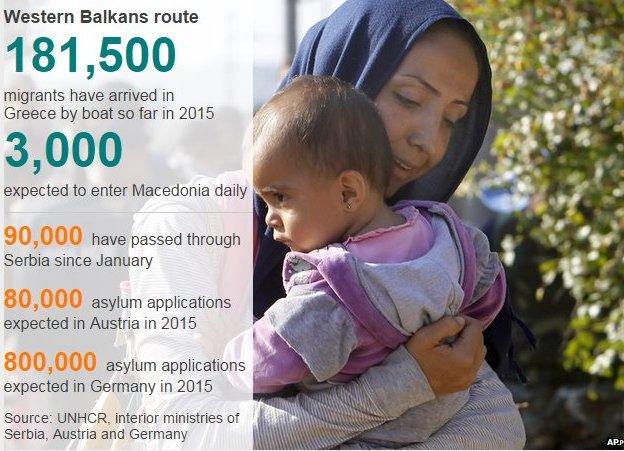
Migrants have continued to travel to Europe via the Central Mediterranean route, and the bodies of at least 51 people were found on Wednesday in the hold of a ship off the coast of Libya.
But the number of migrants travelling through the Western Balkans has grown dramatically in recent weeks, with Syrians, Iraqis and Afghans heading for Western European countries, and Germany in particular.
On Wednesday police counted more than 3,000 crossing into Serbia. The UN says a similar number are expected to enter Macedonia every day in the coming months.
'Backlash'
"Unless we have a European answer to this crisis, no-one should be under any illusion that this will be solved," Macedonian Foreign Minister Nikola Poposki told the Vienna summit.
The EU has said it will release €1.5m (£1.1m; $1.7m) in funds to help Macedonia and Serbia. But Serbian Foreign Minister Ivica Dacic said the money would not solve the crisis.
"When do you plan to establish controls and prevent migrants going to Serbia and Macedonia?" he asked.
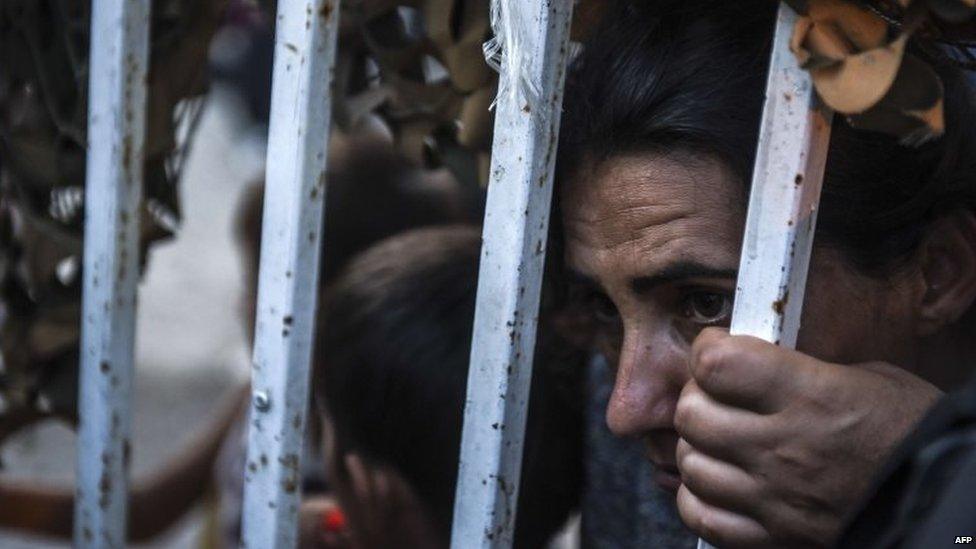
More than 3,000 migrants were counted crossing from Serbia into Hungary on Wednesday
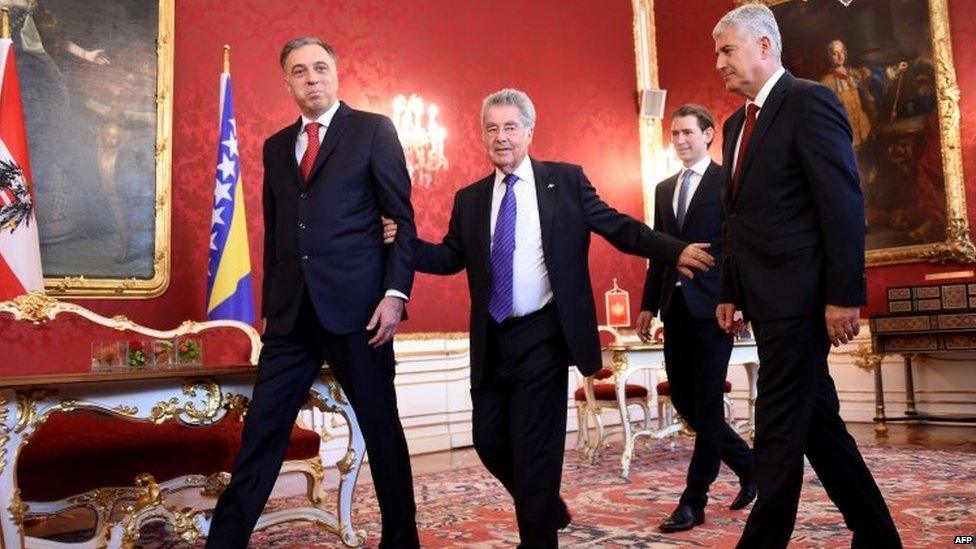
Delegates to the Vienna conference began arriving in Austria on Wednesday evening
Germany says it expects at least 800,000 people to seek asylum in the country this year - far more than any other EU nation.
The EU had tried to persuade member states to accept a quota system for taking in 40,000 Syrians and Eritreans over the next two years.
But they eventually agreed last month to accept 32,500 on a voluntary basis.
Earlier German Foreign Minister Walter Steinmeier warned of a public backlash if only a handful of countries took in the majority of people.
His Austrian counterpart, Sebastian Kurz, highlighted the need to deal with the large number of migrants heading to the EU through Western Balkan nations.
He stressed that the "whole idea of the European Union without borders inside is in danger" if the bloc's external borders were not secure.

It is estimated that more than 2,300 people have drowned while attempting to cross the Mediterranean from north Africa since the beginning of this year.
Smugglers based in Libya are believed to be taking advantage of calmer seas to send more boatloads towards Europe.
Since the beginning of 2015, some 340,000 migrants have been detected at Europe's external borders , according to EU border agency Frontex.
That compares with 123,500 in the same period last year.
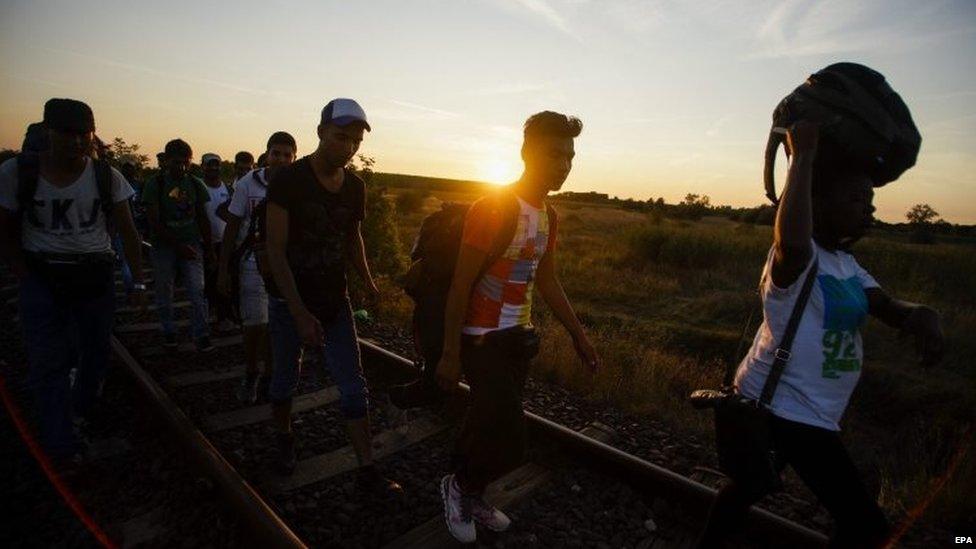
The summit took place as large number of migrants head to the EU through the western Balkan nations
- Published27 August 2015
